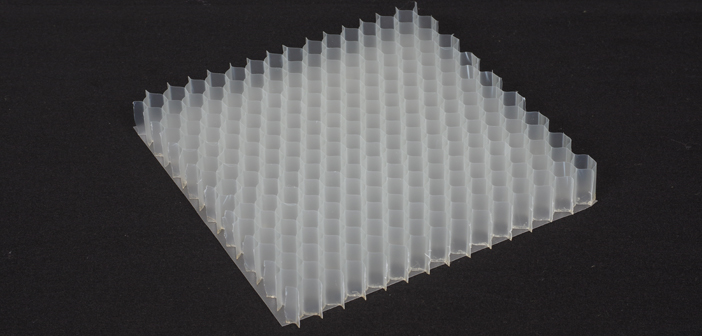Nissan is showing a new material at this year’s CES trade show that can help make car cabins quieter while also boosting energy efficiency.
The new material is a simple combination of a lattice structure and plastic film, which controls air vibrations to limit the transmission of wide frequency band noise (500-1,200Hz), such as road and engine noise.
Currently, most materials used to isolate this frequency band consist mainly of heavy rubber board, Nissan says. Its new “acoustic meta-material” weighs only a quarter as much as these while providing the same degree of sound isolation.
Because of its simple structure, the material’s cost competitiveness in terms of mass production is claimed to be almost the same as, or possibly better than, current materials. Therefore, the material can also be applied to vehicles where the use of sound insulation materials is currently limited due to cost or weight. Making vehicles lighter helps limit the environmental impact of driving by improving energy efficiency, Nissan says.
The company started its research on meta-material technology around 2008. At the time, meta-material was used in high-sensitivity antennas used for electromagnetic wave research. Nissan worked to extend the applicability of meta-material technology to include sound waves, leading to the successful invention of acoustic meta-material.



